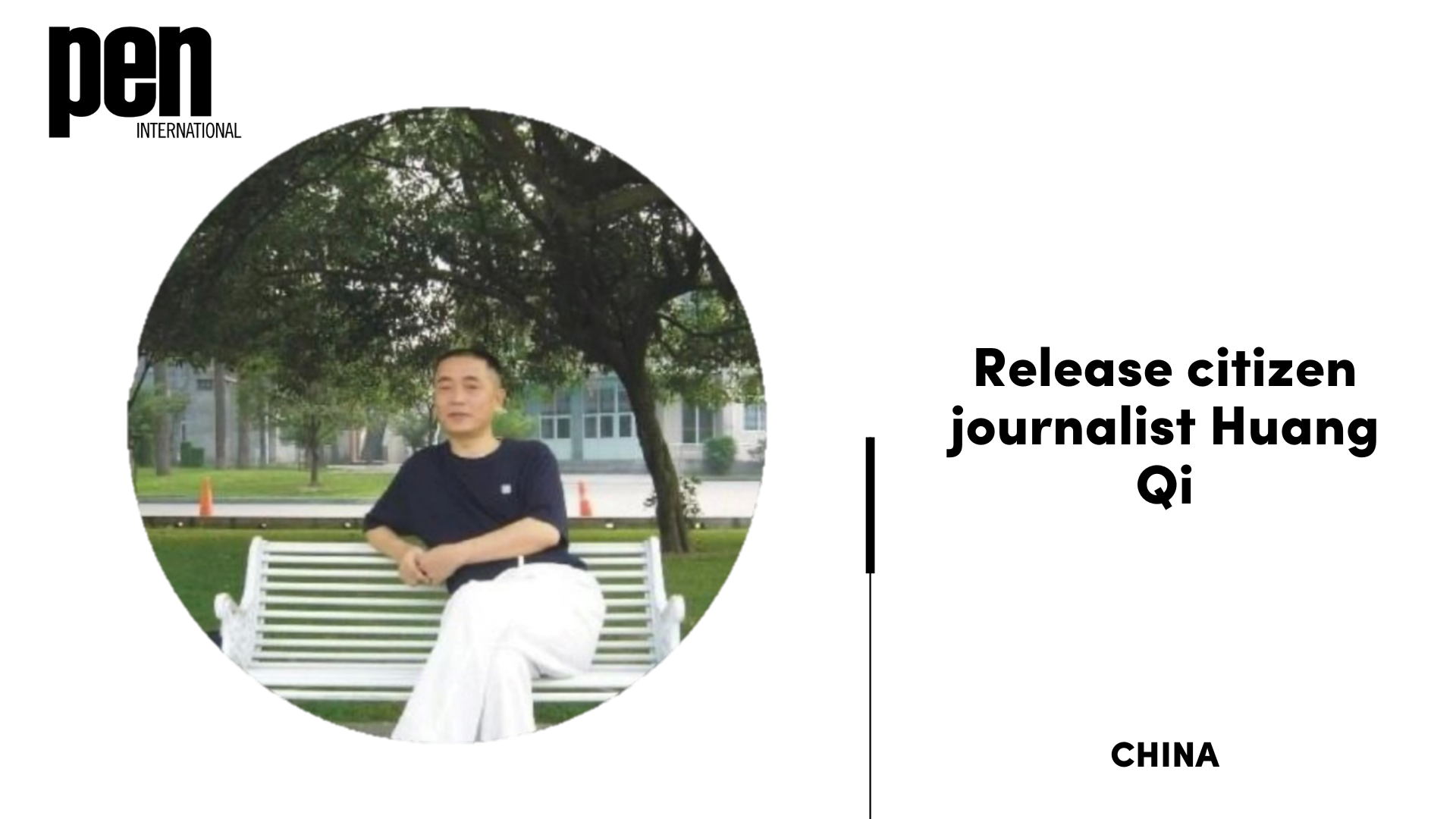China: Release citizen journalist Huang Qi
Image courtesy of Wang Jing
02 August 2023: Last weekend marked four years since citizen journalist, publisher and activist Huang Qi (黄琦) was sentenced to 12 years’ imprisonment for peacefully exercising his right to freedom of expression. Huang suffers from several critical health conditions and the authorities have repeatedly denied requests from his family and legal representatives to meet with him in-person since he was imprisoned. We are deeply concerned for his health and well-being and call for his immediate and unconditional release.
On 29 July 2019, Huang Qi was sentenced to 12 years’ imprisonment and a further four years deprivation of his political rights after he was convicted of ‘leaking state secrets’ and ‘illegally providing state secrets to foreign countries’. While the trial was held behind closed doors, the conviction is thought to be connected to his work publishing reporting on human rights violations in China through his human rights website called 64 Tianwang, named after the Tiananmen Square massacre that took place on 4 June 1989.
‘At a time when independent media is heavily repressed in China, citizen journalists have played a crucial role in providing a source of uncensored news and information, often at great personal risk. Huang Qi’s unjust imprisonment on national security grounds is an alarming example of the PRC government’s intolerance towards the right to freedom of expression when it is exercised by those who speak truth to power. We call for Huang’s immediate and unconditional release’, said Ma Thida, Chair of PEN International’s Writers in Prison Committee.
On 28 November 2016, Huang was detained at his home by police just weeks after his website, 64 Tianwang, received a press freedom prize from RSF. He was then allegedly held incommunicado until his formal arrest on charges of ‘illegally providing state secrets to foreign entities’ on 16 December 2016.
While held in pre-trial detention, Huang was repeatedly denied adequate medical care, and he reported to his lawyer that the authorities deliberately provided incorrect results for his blood pressure as part of efforts to cover up the severity of his deteriorating health. Denial of adequate medical care has been a frequently used tactic against dissidents in China, including Nobel laureate and former president of the Independent Chinese PEN Centre, Liu Xiaobo.
Despite a campaign by Huang’s mother Pu Wenqing, human rights NGOs, and calls for his immediate release from United Nations experts, he remains detained while suffering from heart disease, a potentially fatal kidney condition and hydrocephalus (excess fluid in the brain).
On 24 November 2022, Pu Wengqing, who suffers from lung cancer and frequent harassment from the authorities, was permitted to see her son for the first time since he was detained through a video call lasting just two minutes before it was cut off. Since then, Pu and Huang’s lawyers have been repeatedly denied the ability to visit him and assess his wellbeing.
Huang Qi is an award-winning citizen journalist, publisher and activist who has been referred to as China’s first “cyber-dissident”. He founded China’s first human rights website, 64 Tianwang, in 1999. Reliant on a network of citizen journalists across the country, at its height, 64 Tianwang played a key role in highlighting human rights issues ranging from human trafficking to the persecution of Falun Gong practitioners.
Huang was initially praised by state media for his human rights work, however over the following years, Huang and numerous contributors to 64 Tianwang have been heavily persecuted for their reporting on sensitive human rights issues inside China.
In June 2000, eleven years after the 1989 Tiananmen Square massacre, Huang was detained after he posted articles written by others that called for the prosecution of officials responsible for the violent crackdown against student protestors on 4 June 1989. In August 2001, Huang was put on trial for “internet crimes”, reportedly the first such trial to take place in China, and sentenced to five years’ imprisonment for “inciting subversion of state power” on 9 May 2003, almost three years after he was initially detained.
According to a communication by the United Nations Working Group on Arbitrary Detention, during his detention Huang was beaten and denied medical care, resulting in injuries to his face and body, including a broken tooth. In its response to the communication, China categorically denied that Huang had suffered ill-treatment or torture while detained and even claimed that he had deliberately injured himself with a pen to avoid interrogation.
Undeterred by his imprisonment, following his release in June 2005, Huang continued to use his website to highlight politically sensitive issues, including his investigation into the government’s response to the 2008 Sichuan earthquake, where over 5,000 children and students died following the collapse of shoddily constructed public school buildings. In June 2008, Huang was detained after he visited the families of children who died in the earthquake and was sentenced the following year to three years’ imprisonment for ‘illegal possession of state secrets’. While imprisoned, Huang’s health declined significantly and he was reportedly diagnosed with a chronic kidney disease, a potentially fatal medical condition that requires regular medical treatment.
Following his release in 2011, Huang continued to publish reporting on human rights issues despite being subjected to routine harassment from the authorities, including his most recent arrest in November 2016.
For further information please contact Ross Holder, Head of the Asia/ Pacific Region at PEN International, email: [email protected]

